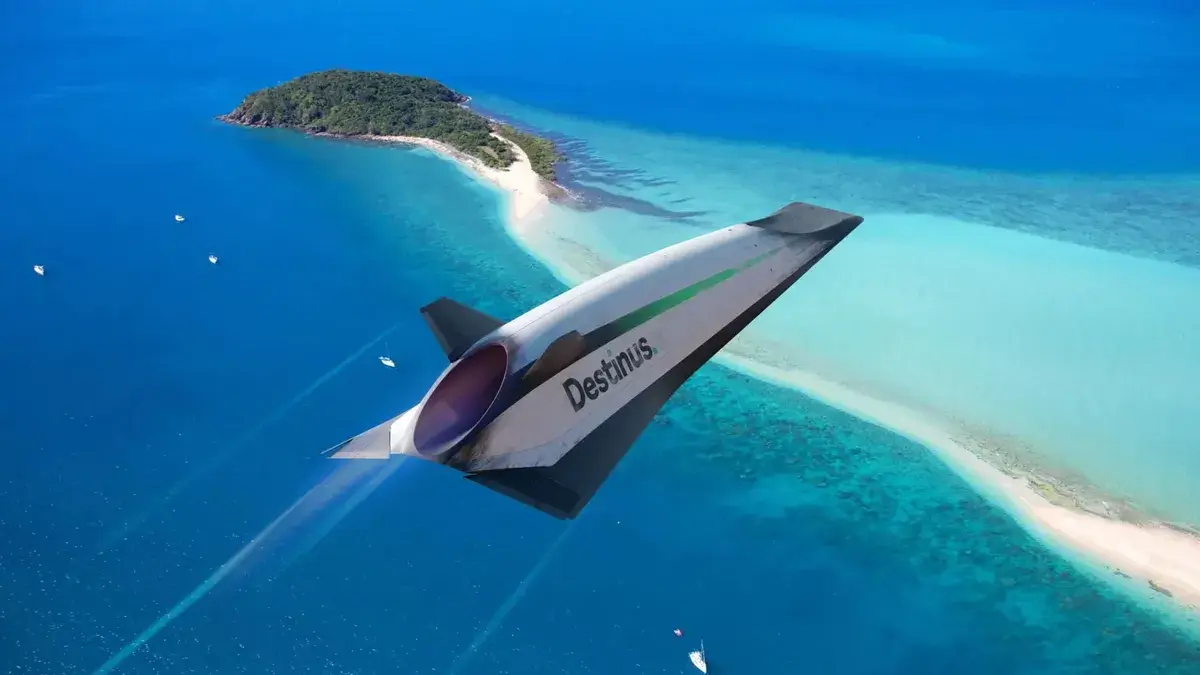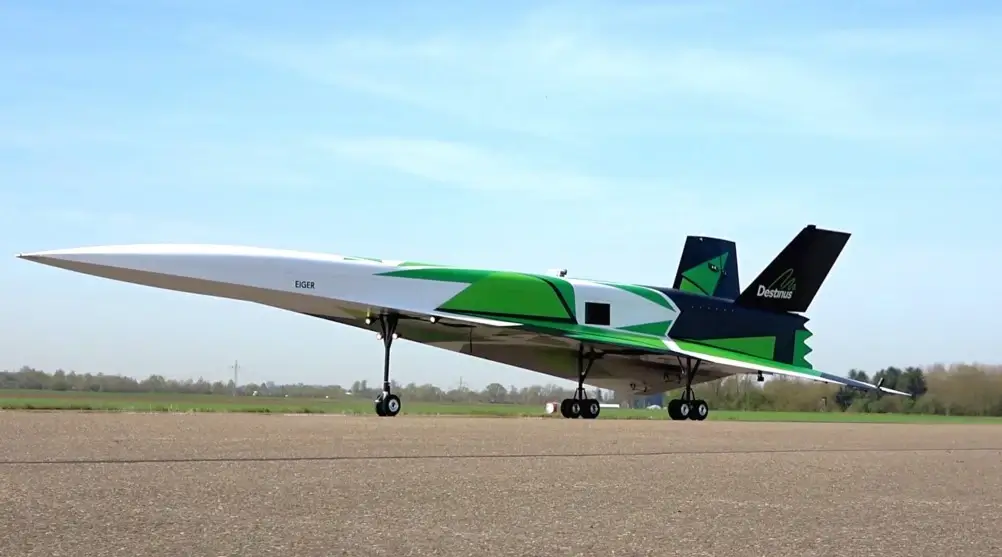 Destinus, a Swiss start-up has been working on a hydrogen-powered passenger jet capable of reducing the travel time from Europe to Australia in just over four hours as opposed to the current 20-hour flight.
Destinus, a Swiss start-up has been working on a hydrogen-powered passenger jet capable of reducing the travel time from Europe to Australia in just over four hours as opposed to the current 20-hour flight.Destinus’s goal is for aircraft to fly at hypersonic speed meaning they exceed five times the speed of sound starting at speeds of Mach 5 making it possible to fly to Singapore for a breakfast.
For two years, the company has been conducting trials of its prototype aircraft “Eiger” culminating in a successful test flight announcement at the end of 2022.
The Spanish Ministry of Science has now selected Destinus to participate in a strategic initiative providing funding for further research and development of a supersonic flight powered by hydrogen fuel.
 According to Destinus, its technology has the potential to significantly reduce flight times for long-haul journeys. For instance, the company claims that a flight from Frankfurt to Sydney could take only 4 hours and 15 minutes, while a flight from Frankfurt to Shanghai would be shortened to 2 hours and 45 minutes.
According to Destinus, its technology has the potential to significantly reduce flight times for long-haul journeys. For instance, the company claims that a flight from Frankfurt to Sydney could take only 4 hours and 15 minutes, while a flight from Frankfurt to Shanghai would be shortened to 2 hours and 45 minutes.
This represents an eight-hour reduction compared to current travel times. This project is aligned with Spain’s broader goal of becoming a leader in the development and deployment of hydrogen-based vehicles across various transportation sectors.
Destinus has been selected by the Spanish Ministry of Science to participate in a strategic initiative aimed at advancing research and development in the area of supersonic flight fueled by hydrogen. As part of this initiative, Destinus will receive funding from the Spanish government to work on this project.
Alongside other companies, technology centers, and universities in Spain. Destinus is focused on achieving the project’s goals which require a budget of €12 million.
 Destinus is collaborating with ITP Aero, a Spanish engine company to establish a testing facility for air-breathing hydrogen engines. The Spanish government’s financial support will enable the construction of this test facility near Madrid where the performance of these engines can be evaluated.
Destinus is collaborating with ITP Aero, a Spanish engine company to establish a testing facility for air-breathing hydrogen engines. The Spanish government’s financial support will enable the construction of this test facility near Madrid where the performance of these engines can be evaluated.
In addition, a second grant of €15 million has been awarded to fund research into the transportation of materials using liquid hydrogen.
Davide Bonetti, VP of Business Development and Products for Destinus
“We are delighted to have been awarded these grants, especially because they are a clear sign that Destinus is aligned with the strategic lines of Spain and Europe to advance hydrogen flight.”
Extensive research and development efforts are currently underway to explore the potential of hydrogen power. When hydrogen is burned it produces primarily heat and water which presents a unique design challenge. Researchers at RMIT University in Melbourne have recently made a breakthrough in this area.
They have developed 3D-printed catalysts that can effectively address this challenge by powering hypersonic flight and serving as a cooling agent to combat the extreme heat generated when aircraft reach speeds of around 6,100 kilometers per hour (km/h).
With this groundbreaking technology, future commercial airlines could complete journeys between London and New York in an astonishingly short time frame of just 90 minutes.
 Destinus will soon be able to conduct flight tests on a jet engine powered by hydrogen post-combustion technology. the company will be working to expedite the development of engines that rely exclusively on hydrogen as a fuel source.
Destinus will soon be able to conduct flight tests on a jet engine powered by hydrogen post-combustion technology. the company will be working to expedite the development of engines that rely exclusively on hydrogen as a fuel source.
The Spanish government has made significant investments in the development of hydrogen-based propulsion systems intending to promote economic resilience and transformation through strategic projects that receive funding from the European Commission’s Next Gen program.
This is in line with the Spanish Plan Nacional del Hidrógeno, which seeks to position Spain as a global leader in the production of renewable hydrogen and the adoption of hydrogen-based transportation solutions in various sectors.













